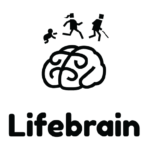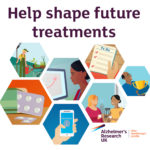Dementia studies
Find out about some of the wide-ranging types of studies available via the Join Dementia Research service.
Great British wellbeing survey
13 October 2020

Do you have dementia, or do you care for someone who does? Have the COVID-19 restrictions had an impact on your wellbeing? Researchers at the UK Dementia Research Institute at Imperial College London would like to hear about your experience of the current situation. They are keen to understand what measures can be taken to […]
SleepQuest: sleep and mental health during the COVID-19 pandemic
5 May 2020

Good sleep is critical for wellbeing – including dementia prevention and good mental health. But the COVID-19 pandemic and lockdown is placing people under huge stress, which may disturb sleep. Disturbed sleep now may have an impact on current and future health for all, in particular those at risk of dementia. The SleepQuest study needs to hear about your experiences to understand the effect that the outbreak is having and create advice on how to manage sleep throughout this crisis and beyond.
How are COVID-19 closures affecting people with dementia and their carers?
21 April 2020

Due to the Coronavirus pandemic, many of the face-to-face services people with dementia and their carers often rely on are temporarily closed. Researchers need your help to understand the impact of these closures on the wellbeing of people with dementia and their carers.
The Global Brain Health Survey – take part today
10 January 2020

The Global Brain Health Survey is an anonymous online survey to learn about people’s views on the brain and brain health. Researchers hope that gathering the opinions and attitudes of people worldwide could help shape future policy recommendations to help everyone take care of their brain in a way that fits their daily life. The survey takes approximately 15 minutes to complete, and anyone over the age of 18 can participate.
What’s that study? PREDICT-PD
21 October 2019

PREDICT-PD is a ground-breaking project using simple tests to identify people at higher risk of Parkinson’s disease before the symptoms appear.
Help shape future dementia treatments
21 August 2019

Alzheimer’s Research UK have launched a new nationwide survey to help shape future treatments for dementia. The online survey needs everyone’s views on the aspects of daily life that are most important, and which you would most like to protect if you were to develop a disease that causes dementia. Take part today.
Remembering names through computer therapy
12 August 2019

The ‘Gotcha!’ study is trialling a fun computer-based therapy to help people with dementia remember the names of the people who are important to them.
How does stigma impact people living with dementia?
30 July 2019

Research supported by University College London is investigating how people living with dementia talk about their diagnosis to others. As part of this study, the team are inviting people with a primary diagnosis of dementia to share their experiences of stigma, by taking part in a questionnaire.
Driving and dementia: share your experience
4 July 2019

Help researchers to improve the guidance and support around driving after a dementia diagnosis by taking part in a survey to share your experience.
Help dementia research from home
26 February 2019

Not all research takes place in a lab. Many different types of study are vital to understanding dementia, so there are often ways you can help out from the comfort of your own home. Surveys, questionnaires and online activities give scientists the knowledge they need to improve dementia care and treatments. The Bristol study One […]
